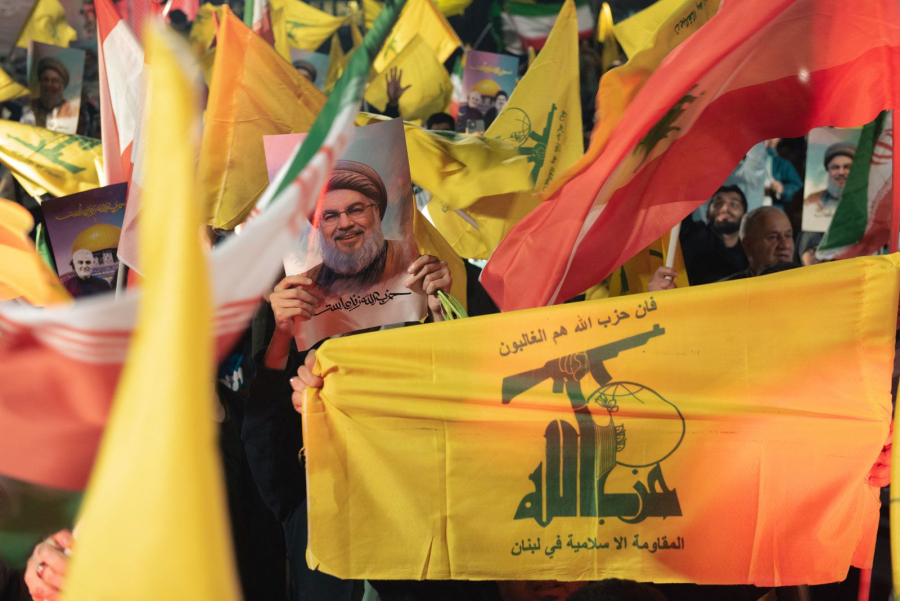Written by: Independent Analyst Syed Nawazish Raza, (Pakistani International Affairs Analyst from Pakistan)
The year 2025 has become a turning point for Lebanon, Syria, and the entire Middle East. The fall of Bashar al-Assad's government in Syria, the rise of a Western-backed Julani regime, the assassination of Hezbollah leadership—particularly the martyrdom of Sayyed Hassan Nasrallah and the direct military presence of Israel on Lebanese soil have drastically altered the regional balance of power. In this scenario, the Lebanese government is under immense international pressure to disarm Hezbollah. Western powers and global media portray this demand as a pathway to peace in Lebanon. But the critical question is: Is this truly a peace effort or a forced political agenda?
Disarming Hezbollah: A Reality or a Deception?
The global narrative being promoted today is:
"For Lebanon’s sovereignty and regional peace, Hezbollah must be disarmed!"
But is that truly in Lebanon’s best interest?
The reality is:
This demand is a top priority for the United States and Israel—because Hezbollah remains the only force that successfully challenged Israel both militarily and politically, most notably during the 2006 war.
If Hezbollah is disarmed today, Lebanon will become a defenceless state, while nuclear-armed Israel continues to sit heavily fortified along its southern border.
Is this a fair balance of power? Or is it a systematic effort to further weaken the already weak?
The Syrian experience is fresh in the minds of the Lebanese.
Bashar al-Assad's government was toppled through armed rebellion supported by the U.S., Europe, Turkey, and Israel. And what followed? Israel dismantled Syria’s military infrastructure, descended from the Golan Heights, and continued advancing. Today, discussions of dividing Syria are underway. Its independence and sovereignty are effectively lost. Will Lebanon repeat that experience? Can the Lebanese afford to trust the U.S. and Israel?
Hezbollah’s Power and Its Role
It is true that Hezbollah holds power comparable to that of a state. But the question is:
Did Hezbollah misuse that power? Did it attempt to overthrow the Lebanese state? Did it use its weapons against the Lebanese people?
The answer is: No. Hezbollah has used its military capabilities solely to resist Israel.
When ISIS and extremist groups threatened the region, Hezbollah stepped forward to protect Lebanon’s borders—while most politicians simply issued statements.
Hezbollah is not an ordinary political party. It is a well-structured political and military entity. It has influence in key positions within Lebanon's army and state institutions. Its social service network, including hospitals, schools, and aid programs, is active not only in Shiite areas but also in Sunni and Christian regions.
Is Hezbollah Really Weak Now?
Some analysts claim Hezbollah is now weakened, due to:
The fall of Bashar al-Assad’s government, severing supply and logistical routes
The martyrdom of its top leaders, including Sayyed Hassan Nasrallah
Israeli strikes targeting weapons depots and command structures
But is this weakness permanent or temporary? Ground realities suggest Hezbollah remains organized, armed, and ideologically committed to resistance.
What Happens if Hezbollah Is Disarmed?
Will Israel withdraw its forces if Hezbollah lays down its weapons?
No. In fact, it will advance further. That has always been its policy: “When the threat is gone, expand the control.”
Can the Lebanese army stand up to Israel?
The honest answer: No. It is weak and plagued by sectarian divisions.
Can Lebanon rely on the U.S., France, or the United Nations for protection?
History teaches us that these powers stand with the strong—not with the weak.
Is Hezbollah Above Criticism?
Absolutely not. No human institution—religious or military—is above accountability.
But what should the criteria for criticism be?
If Hezbollah were corrupt, oppressive to its people, or used arms for personal gain, it would deserve criticism.
But if a movement has:
Fought solely against an external enemy
Built social systems to support the poor
Sacrificed lives in defense of the homeland
Then calling for its elimination is not wisdom—it is national suicide.
Conclusion: A Fair Question
If disarming Hezbollah were truly for the sake of Lebanon’s independence and peace, everyone would welcome it.
But when the demand comes from the enemy, is enforced by pressure, and seeks to dismantle the last line of resistance—then we must ask:
Do we want a Lebanon that is dignified, free, and resistant?
Or a Lebanon that is weak, submissive, and left to Israel’s mercy?


















